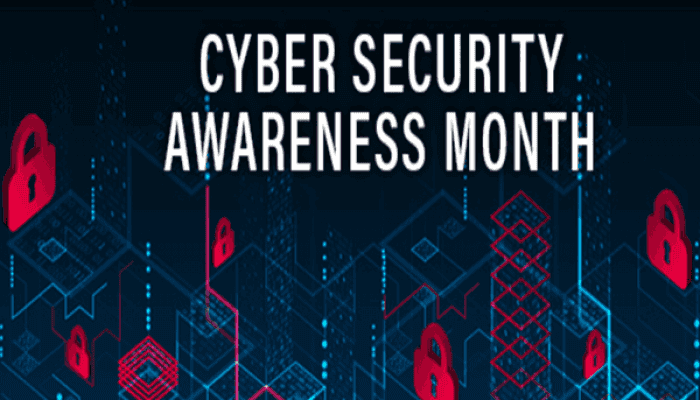Though threats to cybersecurity may regularly make the news, we know how to guard against them. That’s why we’re recognizing Cybersecurity Awareness Month this October by sharing tips to stay cyber secure, both at work and at home. To turn away cyber-attacks, a little knowledge teamed with critical thinking skills can go a long way!
Understanding URLs
You receive a link to a website in an email, but how can you be sure that it is secure? Hackers can manipulate them, making slight variations of trusted websites to trick unsuspecting users. To help you determine if a URL has been edited, follow these best practices to help keep your organization and yourself safe.
- Review the URL (Uniform Resource Locator), commonly called a link, carefully.
- When in doubt, do not click on the link.
- Verify with your IT/Security team to make sure that it is safe.
Phishing: Don’t get reeled in!
Cybercriminals use phishing to try to reel you in and break into your organization’s computer networks. Their goal is to trick you into taking an action that will allow them to steal proprietary or customer-sensitive information.
What motivates criminals to go phishing?
- Money– whether it’s stealing it or selling your information for a profit.
- Access– breaking into your organization’s network to gain access to confidential information.
What causes a large percentage of people to take the bait?
- Distraction is one of the main reasons people fall for phishing scams.
Here are some tips for staying safe:
- Never click on a link without checking it out! Always hover over links to make sure they are correct. Look for differences like changes in spelling or special characters or numbers in addition to, or in place of, letters.
- If you are on a mobile device, you should wait until you get to a computer to check the link.
- Verify the sender and the request. If an email seems strange, is unexpected, asks you to reply with personal or financial information, or open an attachment, don’t do it! Verify that the request and sender are legitimate before taking any action.
- Stop, look, and think! If the email is urgent or trying to get you to act fast, stop, look, and think about what they want you to do before you take an action.
Working from home
The concept “Working From Home” (WFH) has gone mainstream and is often the preferred way for some positions to get maximum productivity. Apart from that, it’s also an effective way for organizations to assure business continuity when unexpected circumstances like natural disasters or pandemics crop up.
Here are some tips for keeping safe online when working away from the office:
- Identify and secure your physical workspace.
- Keep your work and personal life separate.
- Make sure your devices are secured.
- Ensure your internet connection is secure.
- Always be cautious of hackers’ tricks.
- Stay secure when working remotely from public spaces.
- Know your organization’s policies and procedures.
To learn more about cybersecurity, visit:
- https://cyber.gc.ca/en/guidance
- https://www.getcybersafe.gc.ca/en/cyber-security-awareness-month
- https://www2.gov.bc.ca/gov/content/governments/services-for-government/information-management-technology/information-security/information-security-awareness/cyber-security-awareness-month
- https://www.canada.ca/en/communications-security/news/2022/09/cyber-security-awareness-month-2022.html
Have a cyber secure October!


